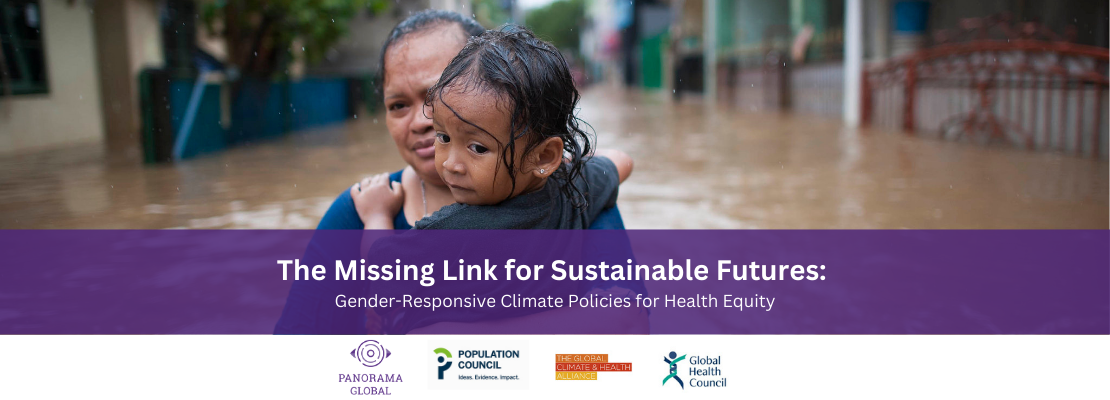
On World Contraception Day and on the sidelines of UNGA79 and Climate Week 2024,
Panorama Global, Population Council, Global Climate and Health Alliance, and Global Health Council hosted, "The Missing Link for Sustainable Futures: Gender-Responsive Climate Policies." More than 80 attendees engaged in a dynamic dialogue on solutions to the climate crisis’ devastating impact on gender equality and health equity goals. The event featured a panel discussion followed by a networking reception and opportunity for participants to reflect on and surface key challenges as well as opportunities for collaboration.
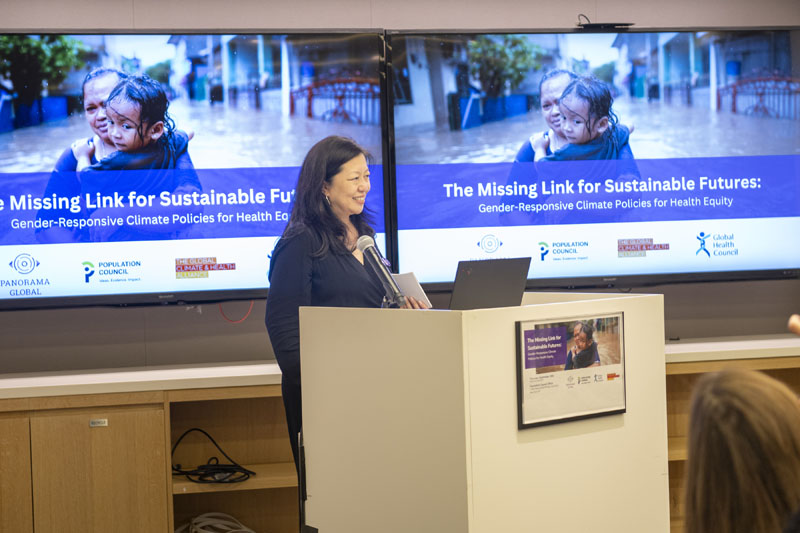
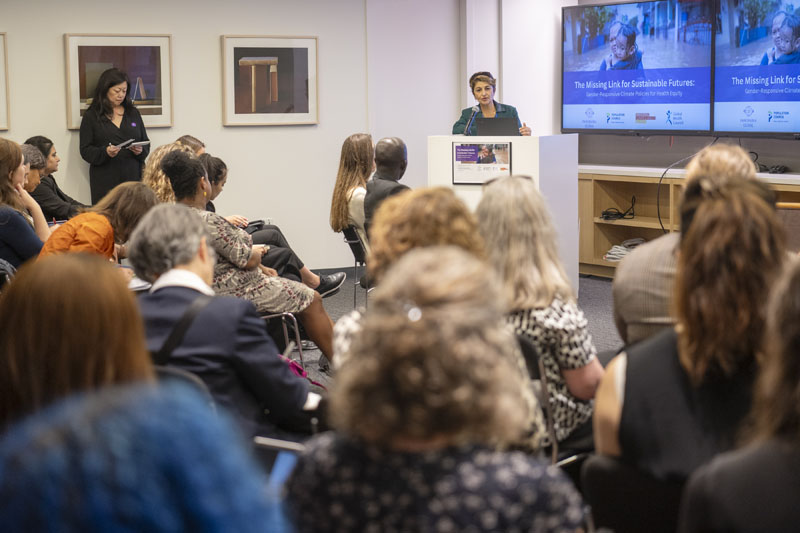
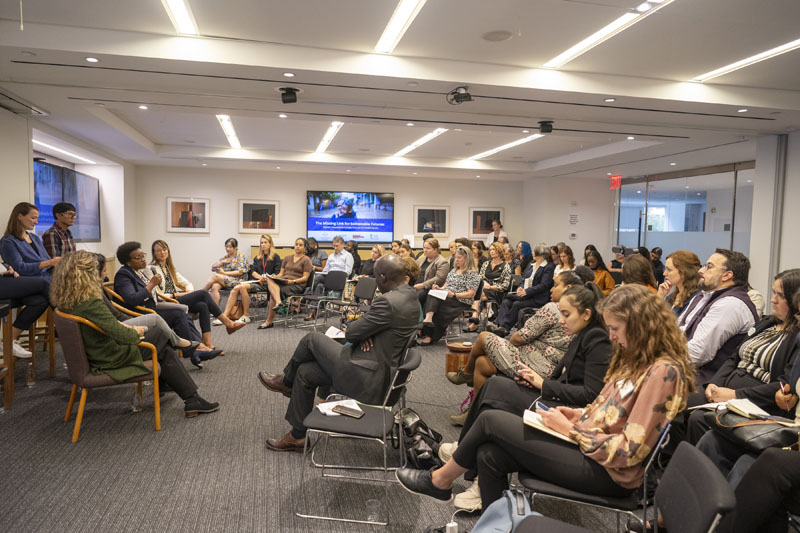
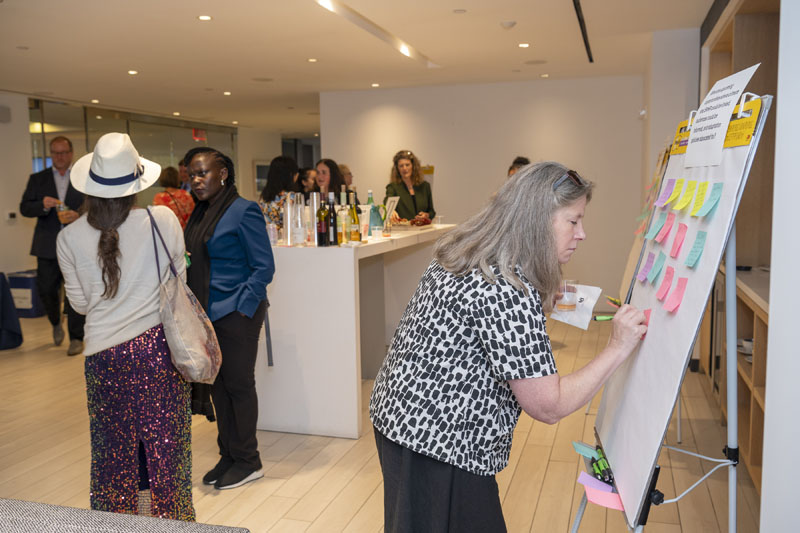
Photo credit: Rohanna Mertens
The event began with a thought-provoking conversation among a panel of policymakers, funders, researchers, and civil society stakeholders. Attendees listened to insights from experts including:
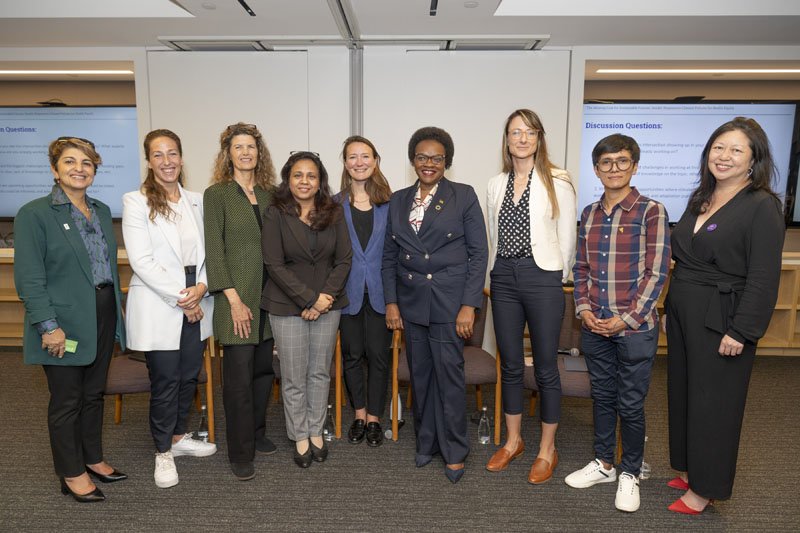
Photo credit: Rohanna Mertens
Dr. Rana Hajjeh, the newly appointed Population Council President, opened the discussion with excitement about bringing together climate and health advocates. Panelists expressed optimism that climate and health are finally linked, noting recent national commitments to more urgently address this intersection in programs, policies, and plans.
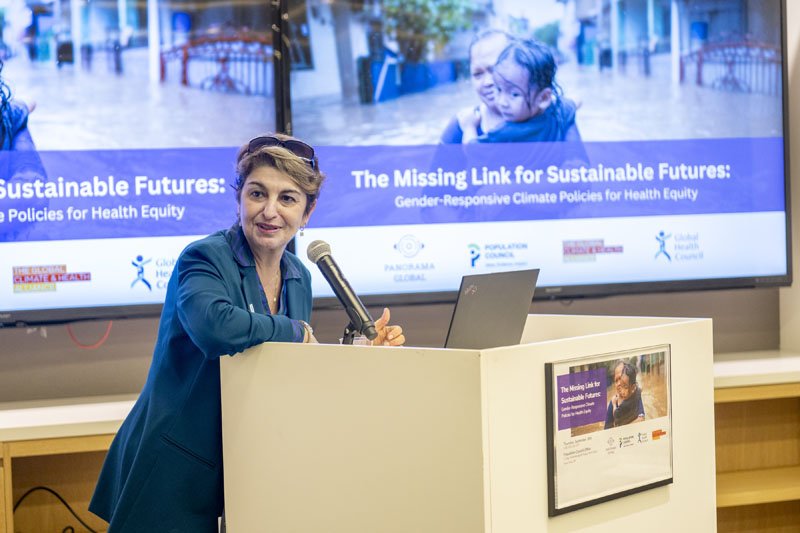
Photo credit: Rohanna Mertens
The discussion centered on maintaining this momentum by advocating for gender mainstreaming into climate policies and financing negotiations. Speakers called for continued support at the country level to incorporate sexual and reproductive health and rights (SRHR) and gender budget lines into disaster preparedness and climate adaptation plans. This solution is one way to prevent backsliding SDGs 3 and 5, focused on health and gender equality, respectively.
Watch the recording of the panel discussion.
Panelists unanimously agreed that generating new evidence at the nexus of climate change and SRHR is critical to maintaining momentum while also emphasizing that the existing evidence is sufficient to take action now. It’s clear that working across sectors to support movement-building and amplifying community voices—particularly women—who are most affected by climate change builds resilience and health equity.
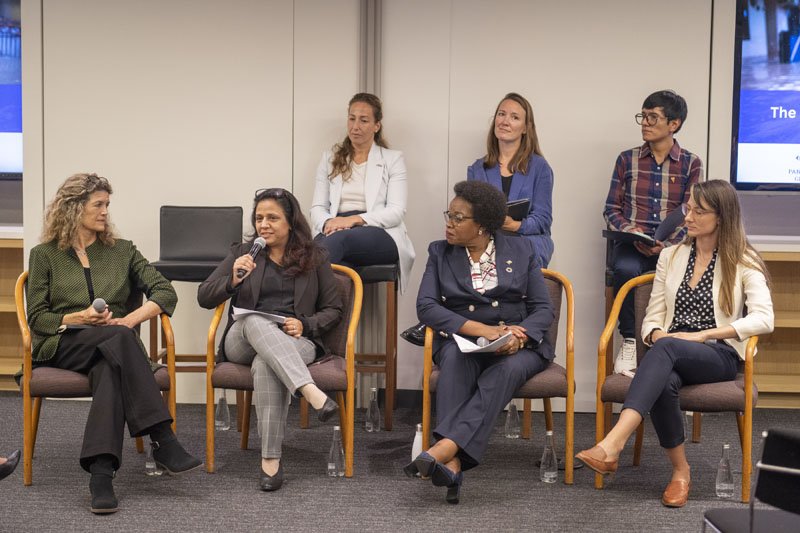
Following the panel discussion, attendees reflected on three questions related to their experience working at the intersection of climate and sexual and reproductive health and rights, the challenges, and the opportunities for collaboration to drive greater visibility to organizations working at this intersection.
Over refreshments, attendees from the gender, climate, health, and development sectors networked and exchanged ideas on ways to better collaborate across sectors. By the end of the event, participants had listed out pain points, new ideas, and upcoming opportunities for collaboration and advocacy on sticky notes around the room.
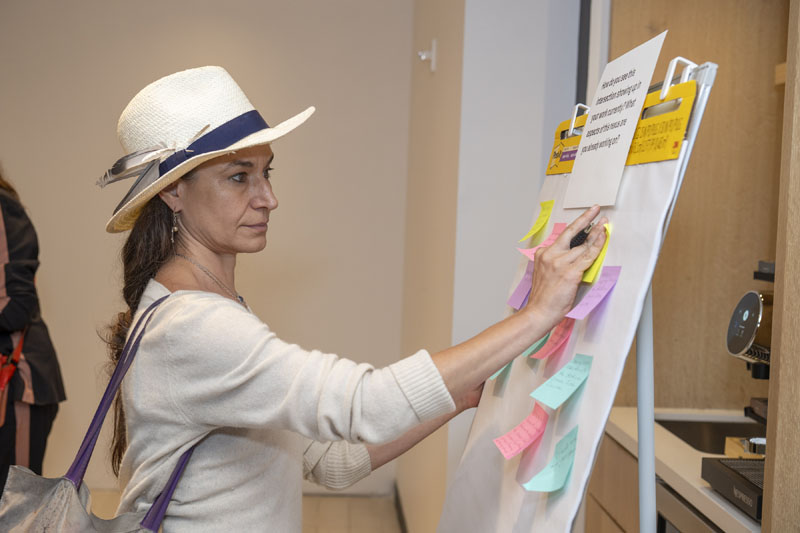
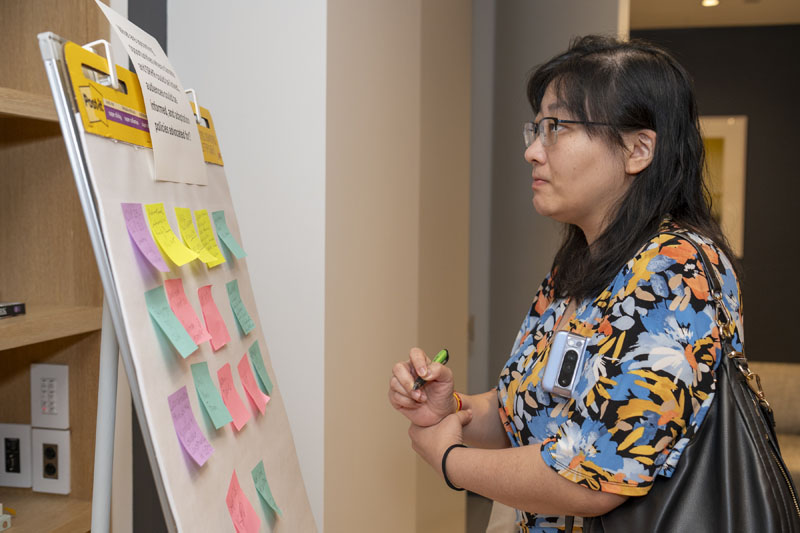
Photo credit: Rohanna Mertens
The activity revealed key challenges to working at the intersection of climate, gender, and health, including:
Despite these obstacles, the event showcased several upcoming advocacy opportunities, including COP29 and COP30, Beijing+30, the Skoll World Forum, World Health Assembly, World Health Summit, and the International Conference on Family Planning 2025.
Now, more than ever, donors are urged to mobilize resources swiftly to support this critical work.
If you are interested in becoming a champion of climate, gender, and health, below are a few resources the panelists highlighted:
We extend our thanks to the expert panelists for sharing their insights and for their continued work championing this critical intersection.
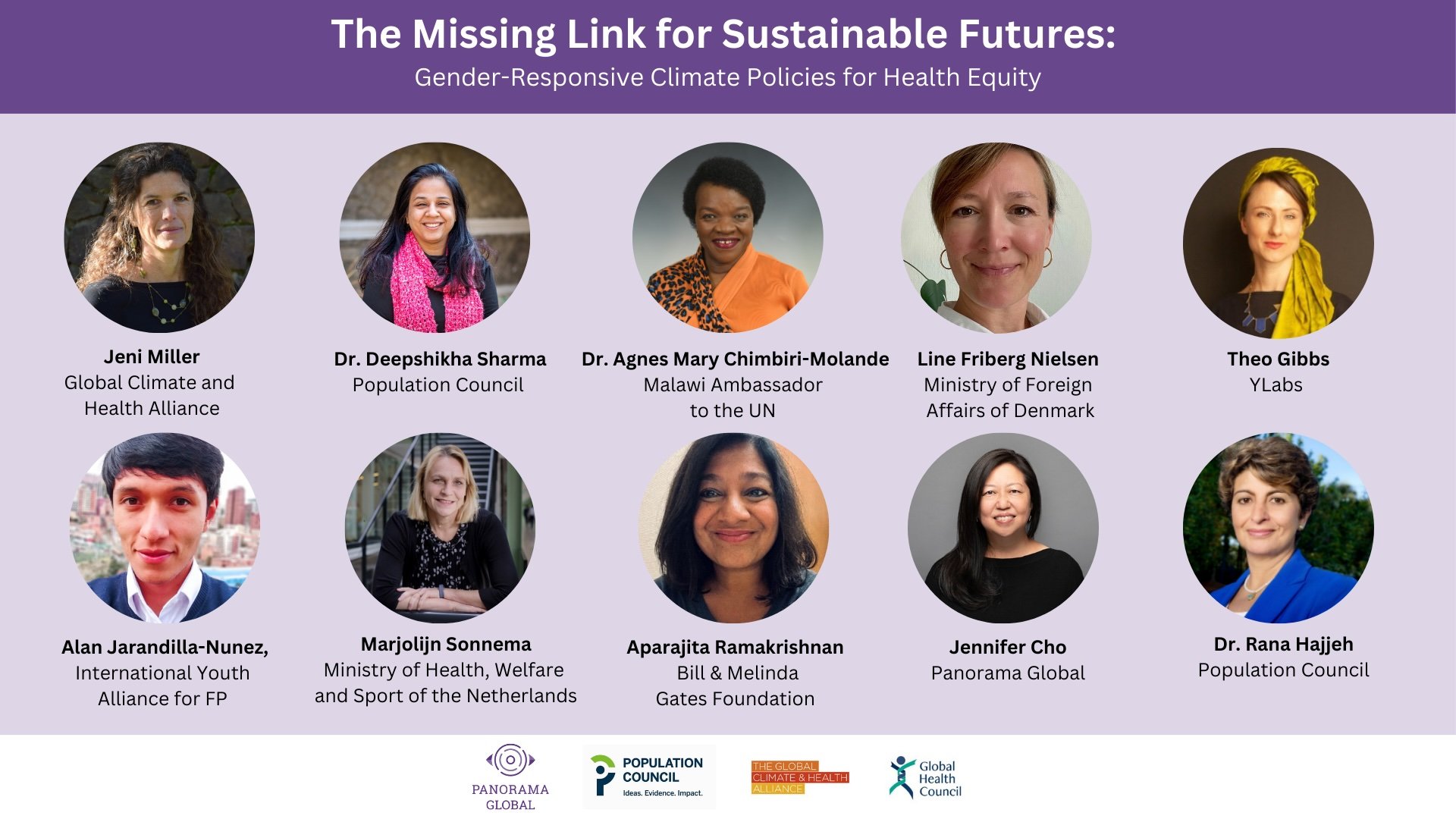
For more information about Panorama Global’s work at the nexus of climate and SRHR, please reach out to Riley Glandon-Shetty, Director of Social Impact.
Join us in making an impact — your support will help accelerate change.
 Your Vision
Your Vision Our Platform
Our Platform Real impact
Real impactPanorama Global is a member of The Panorama Group.
Privacy Policy © 2026 Panorama Global. All rights reserved.
